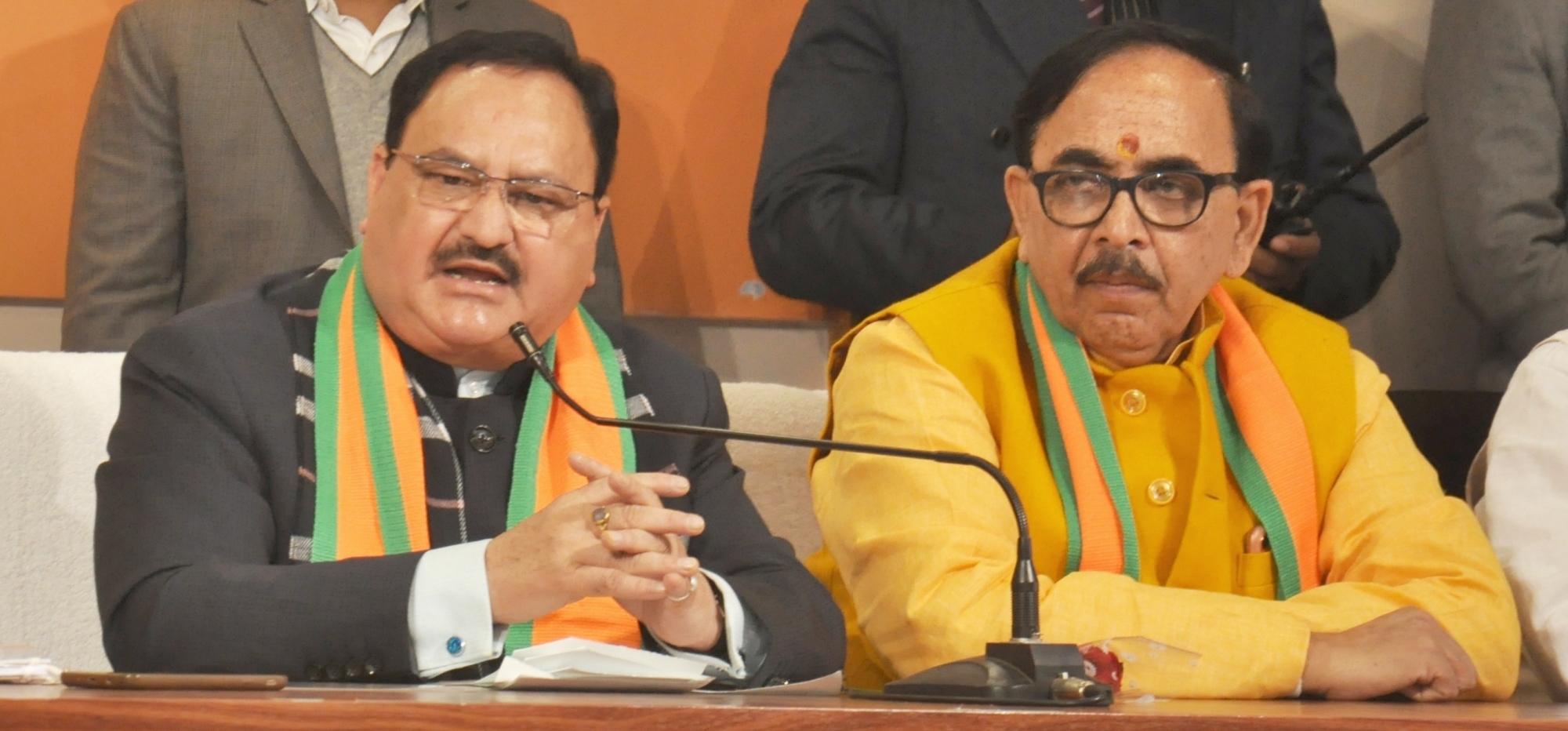Heath Minister JP Nadda call upon countries to enhance funds for health sector

- Country:
- India
Asserting that political commitment and enhanced funds for the health sector has helped India rein in diseases such as HIV, TB and malaria, Union Health Minister J P Nadda Friday urged countries with high burden of such diseases to enhance budgetary allocations for health. Addressing a preparatory meeting for the Sixth Global Fund Replenishment conference, Nadda said, "India has set an example globally by increasing its domestic financial allocations for health."
India has been consistently exhibiting successes in the arena of health as an outcome of focussed policies, strategies and programmes, he said. "We are now in a position, where we are talking of elimination of these diseases. In fact, our Prime Minister Narendra Modiji has fixed a target for us to end TB by 2025, five years ahead of the Sustainable Development Goals of 2030," he said.
The Global Fund is seeking to raise at least USD 14 billion for the next three years to help save 16 million lives, cut the mortality rate from HIV, tuberculosis and malaria in half, and build stronger health systems by 2023. Hosted by the Ministry of Health, the preparatory meeting has brought together governments, donors, technical partners and civil society groups in a demonstration of global solidarity to pursue Sustainable Development Goal 3 - "health and well-being for all".
Nadda said the Global Fund has helped in scaling up ART (anti-retroviral therapy) treatment for people living with HIV, transition to viral load testing to monitor treatment outcomes, expand counselling and testing services, especially for the marginalised and key populations as well as move towards elimination of parent to child transmission of HIV. He also appreciated the support of the Global Fund in providing long lasting insecticidal nets (LLIN) to the endemic areas and implement other elimination strategies.
"The impact of these interventions has been well demonstrated in the World Malaria Report 2018, where India has been the only high burden country to show a significant 24 per cent decline in incidence," Nadda said. He said investments will come, provided the high-burden countries also take ownership and accountability.
He stated that the Government of India has significantly increased the budgetary allocations for health. "India has demonstrated that, if there is a will and political commitment, we can do it. I urge all my fellow countries here to also lead by example," he mentioned.
Piyush Goyal, Union Minister of Finance, Corporate Affairs, Railways and Coal, who was present at the event, stressed that India is committed to increasing its domestic financial resources against the three diseases of Malaria, TB and HIV/AIDS. "India is committed to improving the health of its people. We are stepping up our national domestic spending to end TB and other infectious diseases. By building affordable, accessible and quality health services for all our people, we are not only making a case for better health,we are also making an argument for faster and more inclusive growth," Goyal said.
French Health Minister Agnès Buzyn stated that it is time to step up the fight to end the three epidemics by 2030. She urged all stakeholders to make this conference a success. "More than ever, we all need to come together for global health. France will carry this powerful message throughout 2019, notably through our presidency of the G7 and at the Ministerial Health Meeting which I will host in May 16-17 in Paris," she said.
Peter Sands, Executive Director of the Global Fund, commended Prime Minister Narendra Modi's leadership in global health and said commitment and resources from national government is essential to meeting the SDGs. "Reaching the Sustainable Development Goals requires the kind of global solidarity we have seen in New Delhi. With India's leadership, we can take a massive step towards ridding the world from these epidemics," he said.
(With inputs from agencies.)
- READ MORE ON:
- Developed country
- Developing country
- Two Countries
- Piyush Goyal
- Dr. Seema Goyal
- Notional amount
- Arena Birmingham
- Indira Gandhi Arena
- Local government
- Central government
- Government of India
- Parents' Day
- Parental consent
- Parent-teacher conference
- U.S. state
- Multiple choice
- States of India
- Residential area
- Surface area
- Urban area
ALSO READ
Mozambique ferry accident leaves more than 90 people dead including children, local media say
AAP launches 'Jail Ka Jawab Vote Se' campaign, asks people to join to empower Delhi Chief Minister Arvind Kejriwal.
People of Maharashtra have taken pledge for victory of BJP-NDA candidates: PM Modi ahead of Chandrapur rally
I like it when people expect me to win matches, don't take it as pressure: Yash Thakur
People should respond to 'dictatorship' through votes, we'll go door to door in Delhi to seek support for AAP: Party leader Gopal Rai.










